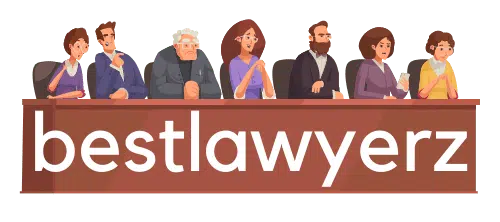Music Lawyer
Music is a universal language that transcends borders, cultures, and generations. It has the power to move people, inspire change, and create unforgettable memories. However, behind every successful musician or band, there is a team of professionals who work tirelessly to protect their interests and ensure that they get the recognition they deserve. One such professional is a music lawyer.
A music lawyer is an attorney who specializes in the legal aspects of the music industry. They provide legal advice and representation to musicians, record labels, producers, and other industry stakeholders. Their job is to help their clients navigate the complex web of laws and regulations that govern the music industry and protect their rights and interests.
One of the main roles of a music lawyer is to negotiate contracts on behalf of their clients. This includes recording contracts, publishing agreements, distribution deals, and licensing agreements. They ensure that the terms of the contract are fair and favorable to their clients and that they receive the compensation they deserve for their work.
In addition to contract negotiations, music lawyers also handle disputes and litigation related to copyright infringement, royalty payments, and other legal issues that arise in the music industry. They have a deep understanding of intellectual property law and can help their clients protect their copyrights, trademarks, and other intellectual property.
Another important role of a music lawyer is to advise their clients on business matters related to their music career. This includes tax planning, business formation, and asset protection. They can provide guidance on how to structure their business and finances to minimize risk and maximize profitability.
In conclusion, a music lawyer is a valuable resource for anyone involved in the music industry. They can provide legal guidance and representation to ensure that their clients’ interests are protected and that they receive the compensation they deserve. Whether you are a musician, producer, or label executive, having a skilled music lawyer on your team can make all the difference in your success.
Key Legal Issues in the Music Industry
The music industry is a complex and dynamic sector that has undergone significant changes over the years. From copyright laws to licensing agreements, there are several legal issues that arise in this industry. These legal issues not only impact the artists but also the record labels, publishers, and consumers. In this article, we will explore some of the key legal issues in the music industry.
One of the most important legal issues in the music industry is copyright law. Copyright protects the rights of the creators of musical works and ensures that they receive appropriate compensation for their creations. Copyright infringement can occur when someone uses someone else’s work without obtaining the necessary permissions or paying the appropriate royalties. This can have serious consequences for both the infringer and the creator of the musical work.
Another key legal issue in the music industry is licensing agreements. Licensing agreements are contracts between music creators and users that allow the user to use the creator’s work for a certain purpose, such as in a movie or on a streaming platform. These agreements can be complicated and require the help of lawyers to ensure that all parties involved are protected.
Trademark law is also important in the music industry. Trademarks protect the names and logos of musical acts, and infringement can occur if another act uses a similar name or logo without permission. This can lead to confusion among fans and harm the original act’s reputation.
Finally, contract disputes can also arise in the music industry. Contracts between artists and record labels, managers, or other parties can be complex, and disagreements can occur over issues like royalties, creative control, or tour schedules. Resolving these disputes can be time-consuming and costly and may require legal intervention.
In conclusion, the music industry is a fascinating and complex sector with many legal issues that must be addressed. Copyright law, licensing agreements, trademark law, and contract disputes are just a few of the key legal issues in the music industry. As the industry continues to evolve and change, it will be important to stay aware of these issues and work towards fair and just solutions for all parties involved.
Copyright Law and Music: What Every Musician Needs to Know
If you’re a musician, it’s essential to understand copyright law and how it applies to your music. Copyright law provides legal protection for your original musical works, ensuring that you are the only one who can profit from them. In this article, we will discuss what every musician needs to know about copyright law and music.
First and foremost, it’s important to understand what copyright is. Copyright is a form of intellectual property that gives creators exclusive rights to their original works. In the context of music, this includes the right to reproduce, distribute, perform, and display your original compositions.
To protect your music, you should register your copyrights with your country’s copyright office. This will give you legal evidence of ownership and help you enforce your rights if someone else tries to use your music without permission.
Another important aspect of copyright law and music is licensing. If someone wants to use your music in a commercial context, such as a film or TV show, they will need to obtain a license from you or your representative. Licensing can be an excellent source of revenue for musicians, but it’s crucial to make sure that you are getting a fair deal.
It’s also important to be aware of the concept of fair use. Fair use allows others to use copyrighted material without permission under certain circumstances, such as for criticism, commentary, news reporting, teaching, scholarship, or research. However, there is no clear-cut definition of fair use, so it’s essential to consult a lawyer if you have any questions.
Finally, it’s crucial to understand international copyright law if you plan on releasing your music globally. Different countries have different laws regarding copyright, and it’s important to make sure that you are complying with all relevant regulations.
In conclusion, understanding copyright law is essential for every musician. By registering your copyrights, licensing your music, being aware of fair use, and understanding international copyright law, you can protect your music and ensure that you are the one who benefits from your hard work.
Negotiating Contracts with Music Industry Professionals
The music industry is a constantly evolving industry that offers vast opportunities for independent artists and music producers. However, navigating the landscape can be challenging, especially when it comes to negotiating contracts with music industry professionals. Whether you are a new artist or an established producer, negotiating contracts is crucial to your success in the music industry.
Firstly, it’s important to understand the contract negotiation process. Contracts are legally binding agreements that define the relationship between two parties. Negotiating contracts involves discussing terms and conditions that satisfy both parties effectively. These terms may include payment schedules, intellectual property rights, and distribution deals. It is essential to have a clear understanding of what you want before entering into negotiations.
Secondly, it’s crucial to research and understand the other party’s interests and priorities. Understanding their goals and objectives can help you tailor your proposals and make concessions that align with their needs. This approach will increase your chances of reaching a mutually beneficial agreement.
Thirdly, it’s important to seek professional guidance from a lawyer or an experienced music industry professional. They can help you review the contract and ensure that you are getting a fair deal. A good lawyer will also ensure that the contract is legally enforceable and that there are no loopholes that could compromise your interests.
In conclusion, negotiating contracts with music industry professionals can be challenging, but it’s essential to your success in the industry. To get the best possible deal, take time to research and understand the other party’s interests and priorities. Seek professional guidance from lawyers or experienced professionals to ensure that your interests are protected. With these tips in mind, you’ll be able to navigate the complex world of music industry contracts with greater confidence and success.
Music Licensing and Royalty Agreements
If you’re a musician, music producer, or someone who wants to use music in your creative project, it’s important to understand the world of music licensing and royalty agreements. These terms can be confusing, so we’ve broken down the basics for you.
First, let’s discuss music licensing. Music licensing is the process of granting permission to use a copyrighted song for a specific purpose. This can include using a song in a movie, TV show, video game, or even a YouTube video. The license typically outlines the terms and conditions of use, including how long the song can be used, where it can be used, and how much the user must pay for the license.
There are several types of music licenses, including synchronization (sync) licenses, mechanical licenses, and public performance licenses. Sync licenses allow the use of a song in combination with visual media, such as a movie or TV show. Mechanical licenses are required for the reproduction and distribution of a song, such as on a CD or digital download. Public performance licenses allow the use of a song in public places, such as restaurants, bars, or live events.
Now let’s talk about royalty agreements. When a song is used under a license agreement, the owner of the song’s copyright receives royalties, which are payment for the use of their intellectual property. Royalties can include mechanical royalties, which are paid for reproductions of a song, and performance royalties, which are paid for the public performance of a song.
Royalty rates can vary depending on the type of license and the intended use of the song. For example, a sync license for a popular song in a blockbuster movie will likely result in higher royalties than a public performance license for the same song in a small local venue.
In conclusion, music licensing and royalty agreements are essential aspects of the music industry. Understanding these concepts can help you navigate the complex world of music licensing and ensure that you’re properly compensated for the use of your music. Whether you’re a musician, music producer, or someone who wants to use music in your creative project, it’s important to do your research and seek professional guidance when necessary.
Litigation in the Music Industry: Protecting Your Interests
The music industry is a complex and competitive field that requires careful consideration and protection of one’s interests. Whether you are a musician, songwriter, producer, or other industry professional, the threat of litigation is always present. To ensure your success in this industry, it is essential to understand your legal rights and take proactive steps to protect them.
First and foremost, it is critical to have a solid understanding of copyright law. Copyright law protects original works of authorship, including songs, lyrics, and recordings. As a musician or songwriter, it is essential to register your work with the U.S. Copyright Office to establish ownership and protect against infringement.
Additionally, contracts play a significant role in the music industry. From recording contracts to licensing agreements, it is essential to have a thorough understanding of what you are signing and how it affects your rights. Before signing any agreement, it is recommended to consult with an experienced attorney specializing in music industry law.
Another area of concern in the music industry is intellectual property theft. With the rise of digital music platforms, piracy and unauthorized use of copyrighted material have become rampant. It is crucial to monitor your work online and take swift action against any instances of infringement.
Litigation can be costly and time-consuming, but it is sometimes necessary to protect your interests in the music industry. If you find yourself in a legal dispute, it is essential to work with an attorney who understands the unique complexities of the music industry and can advise you on the best course of action.
In conclusion, the music industry is a dynamic and exciting field, but it also requires vigilance and protective measures to safeguard your interests. By understanding your legal rights and taking proactive steps to protect them, you can navigate this industry successfully and achieve your goals.
Future Trends in Music Law and Technology
The music industry has undergone a drastic transformation over the years. The convergence of music, law, and technology has given rise to new trends in the industry. As we look towards the future, there are several emerging trends that will shape the music industry.
The first trend is the use of blockchain technology. Blockchain technology offers a decentralized system that can be used to create secure and transparent transactions. This technology has the potential to revolutionize the music industry by enabling artists to have more control over their music rights and royalties. With blockchain technology, artists can receive payment for their work directly without relying on intermediaries who may take a significant percentage of their earnings.
The second trend is the use of artificial intelligence (AI) in music creation. AI music composition and production tools can help musicians compose new tracks and create soundscapes automatically. These tools, combined with machine learning algorithms, can analyze popular songs and identify patterns that can be used to create new music. The use of AI in music production can lead to the creation of unique musical styles and genres.
Another emerging trend in music law and technology is the use of virtual reality (VR) and augmented reality (AR) technologies. These technologies can enhance the music performance experience for fans by creating immersive concert experiences. Artists can use VR and AR to perform concerts from anywhere in the world, allowing them to reach a broader audience.
In conclusion, the music industry will continue to evolve as new technologies emerge. The use of blockchain technology, AI, and VR/AR will undoubtedly shape the future of music law and technology. Musicians and industry players who can keep up with these emerging trends will gain a competitive advantage and succeed in the ever-changing music landscape.





